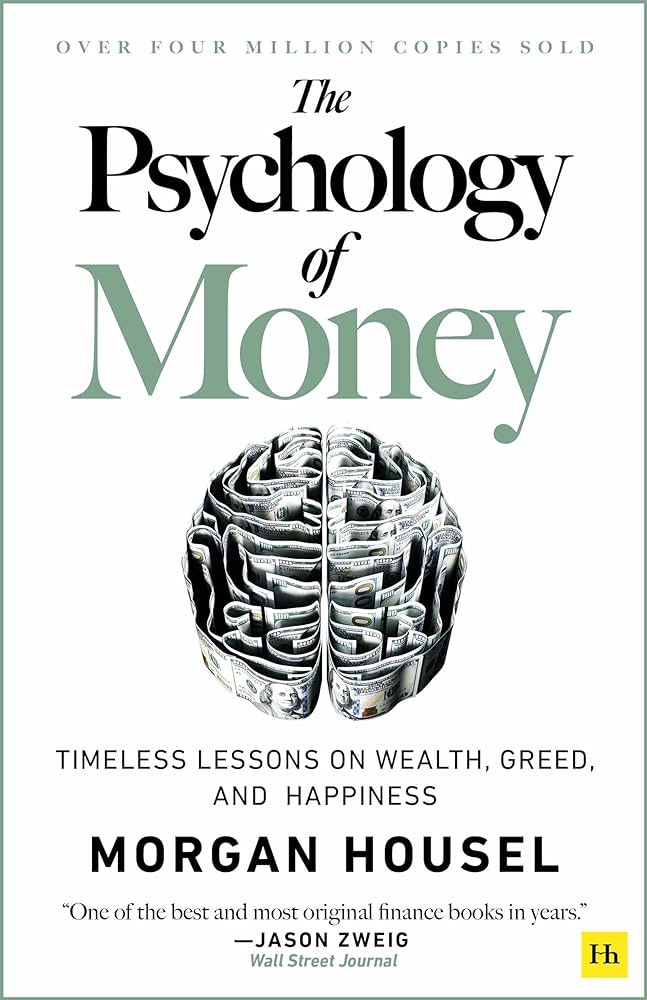The Psychology of Money 📚

The Psychology of Money covers how doing well with money is more dependent on your behaviour than what you know.
Here are some of the topics that stood out to me.
Wealth is what you don’t see
Wealth is income not spent. An option not yet taken to buy something later. Its value lies in giving you options and flexibility.
General advice
“Does this help me sleep at night?” is the best universal guide post of all financial decisions.
If you want to do better as an investor the best thing you can do is increase your time horizon. Time is the most powerful force in investing it makes little things grow big and big mistakes fade away.
Use money to gain control over your time because not having control of your time is a powerful and universal drag on happiness.
The ability to do what you want, when you want, with who you want, for as long as you want to, pays the highest dividend.
Getting wealthy vs staying wealthy
Only the paranoid survive. We can’t assume that yesterday’s success will translate to today.
What differentiates those who succeed is survival, not growth or brains, the ability to stick around for a long time.
Having an edge and surviving are two different things, the first requires the second, you need to avoid ruin at all costs.
Appreciate the following:
- Rather than focus on the greatest returns be unbreakable—because being unbreakable means you get to stick around long enough for compounding to work. Compounding doesn’t require big returns, just sustained good returns.
- Planning is great. Plan on the plan not going to plan. Embrace the downside and plan for it. Build in room for error (aka. Margin of Safety) so you can live without worry.
- Have a barbelled personality—optimistic about the future but paranoid about what will prevent you from getting there.
It’s all in the tails
A small number of events can be responsibile for the majority of outcomes.
All big wins come in the distribution tails. Grab a broad set of things and wait for the winners to emerge. Most will be worth nothing, a very few may win big.
Art collectors grabbed portfolios of art across different emerging artists. Most of their collection was worthless, some had a bunch of Picassos.
Save money
Much of investing is out of your control. Personal savings and frugality are within your control and is effective now and in the future.
Have a buffer for the inevitable surprises life will throw at you.
Room for error
History is littered with good ideas taken too far which makes them indistinguishable from bad ideas.
The only way to deal with unknowns is to increase the gap between what you think will happen from what can happen while still leaving you able to fight another day.
Ben Graham: “The purpose of the margin of safety is to render the forecast unnecessary.”
Margin of safety is the only effective way to navigate a world dominated by odds and not certainties.
Even a five percent chance of ruin is not worth the risk over the long term. Leverage is something that can push routine risks into areas where they can produce ruin.
Think of your own money as barbelled. Take risks with one portion and be terrified with the rest.